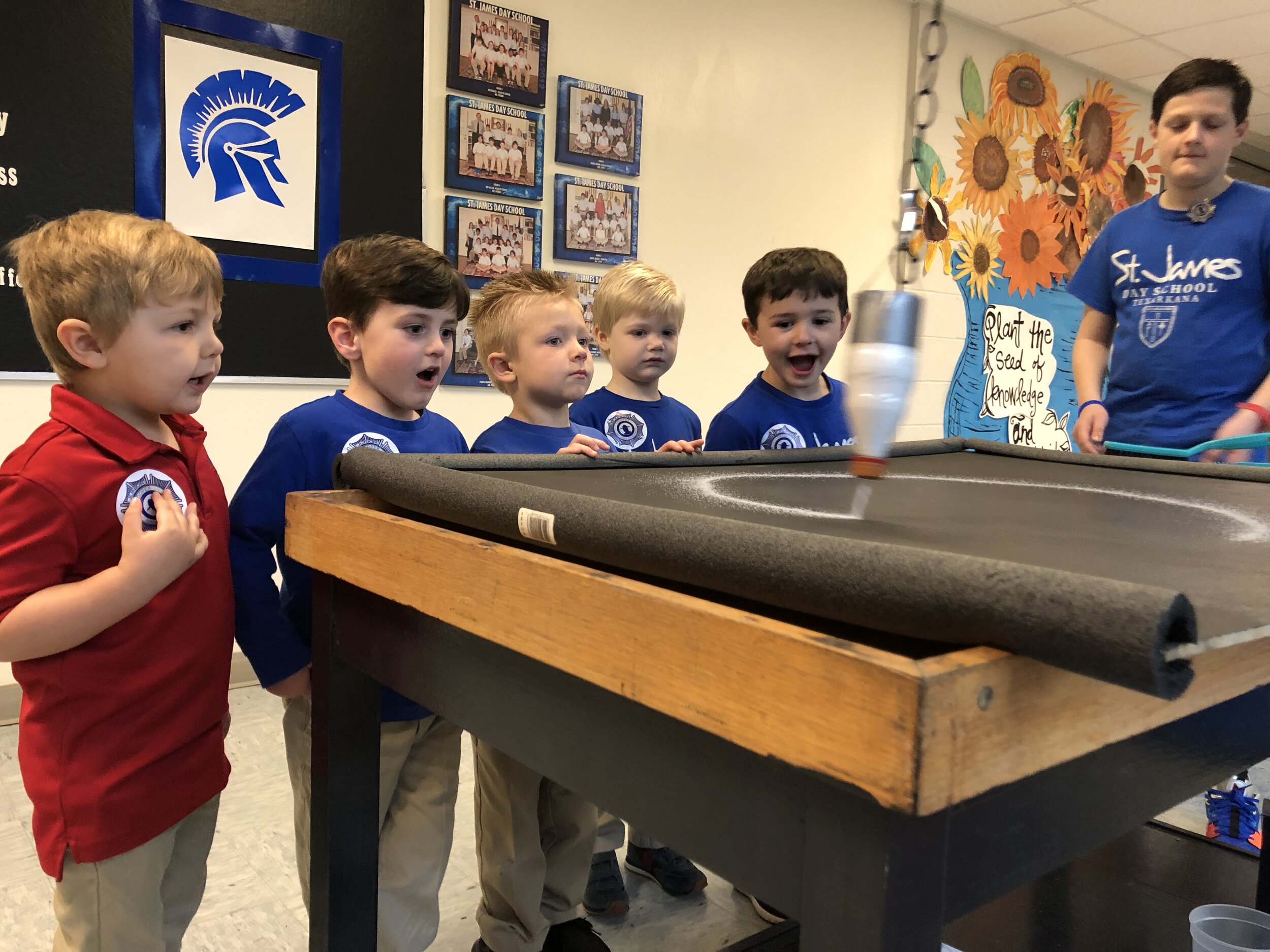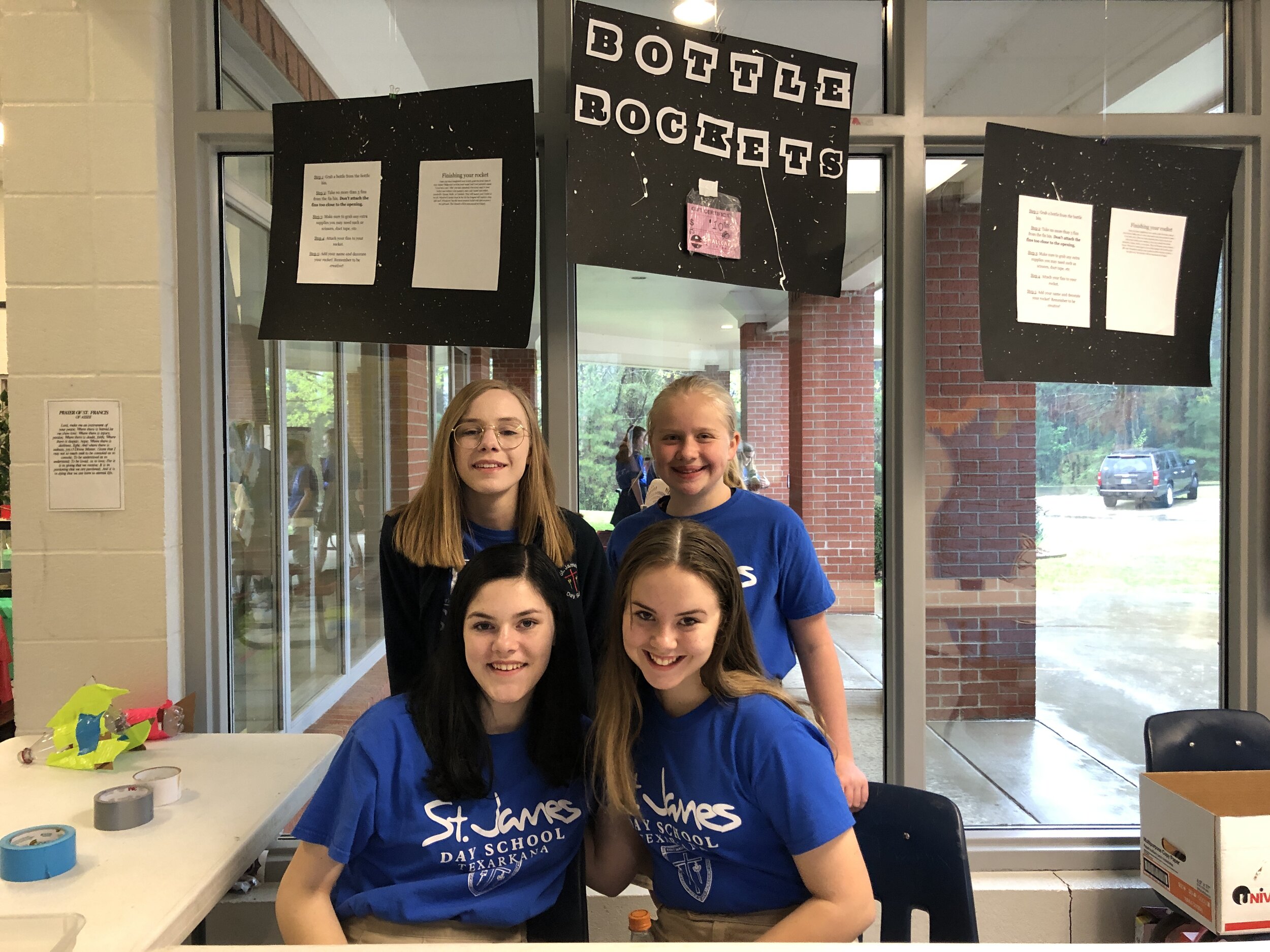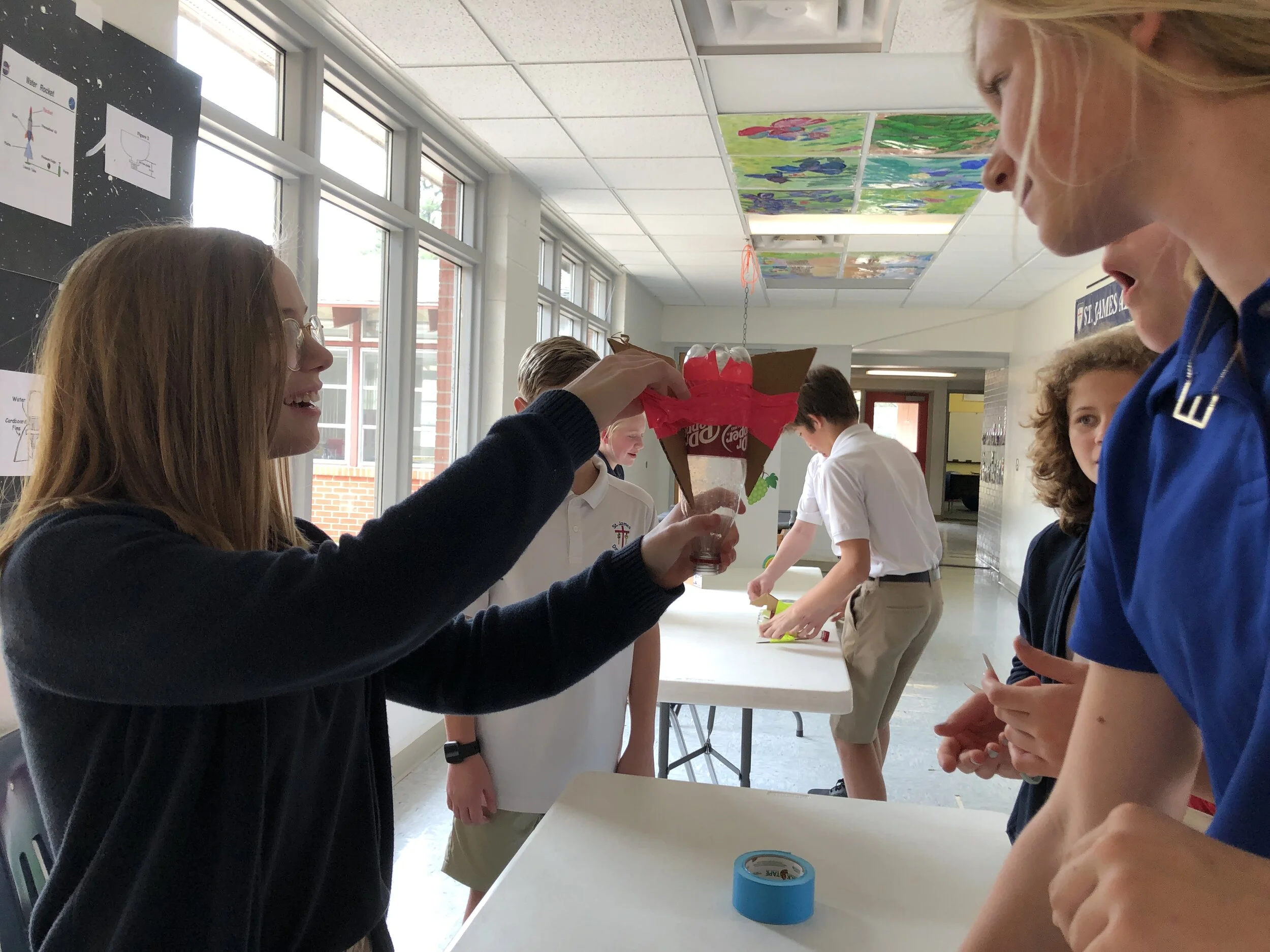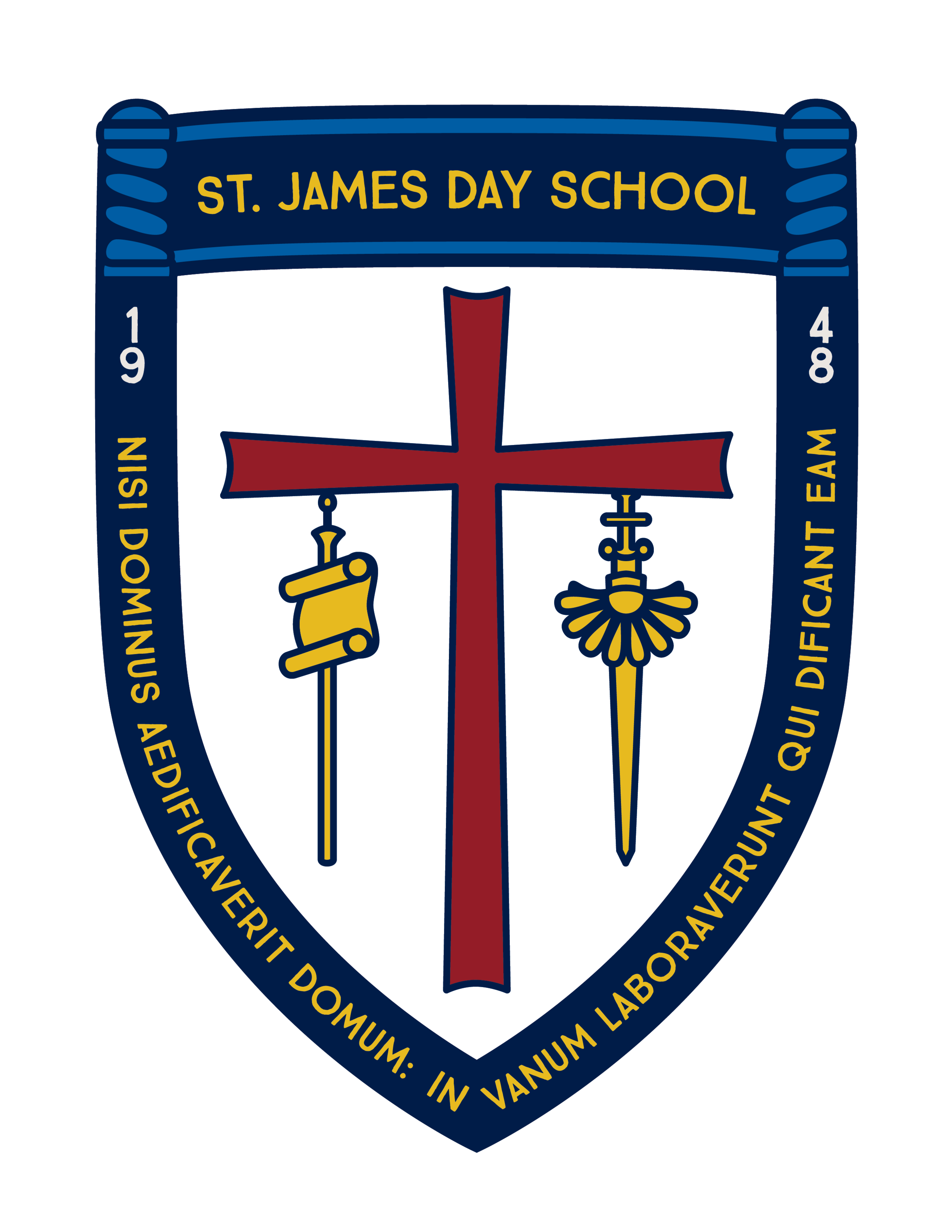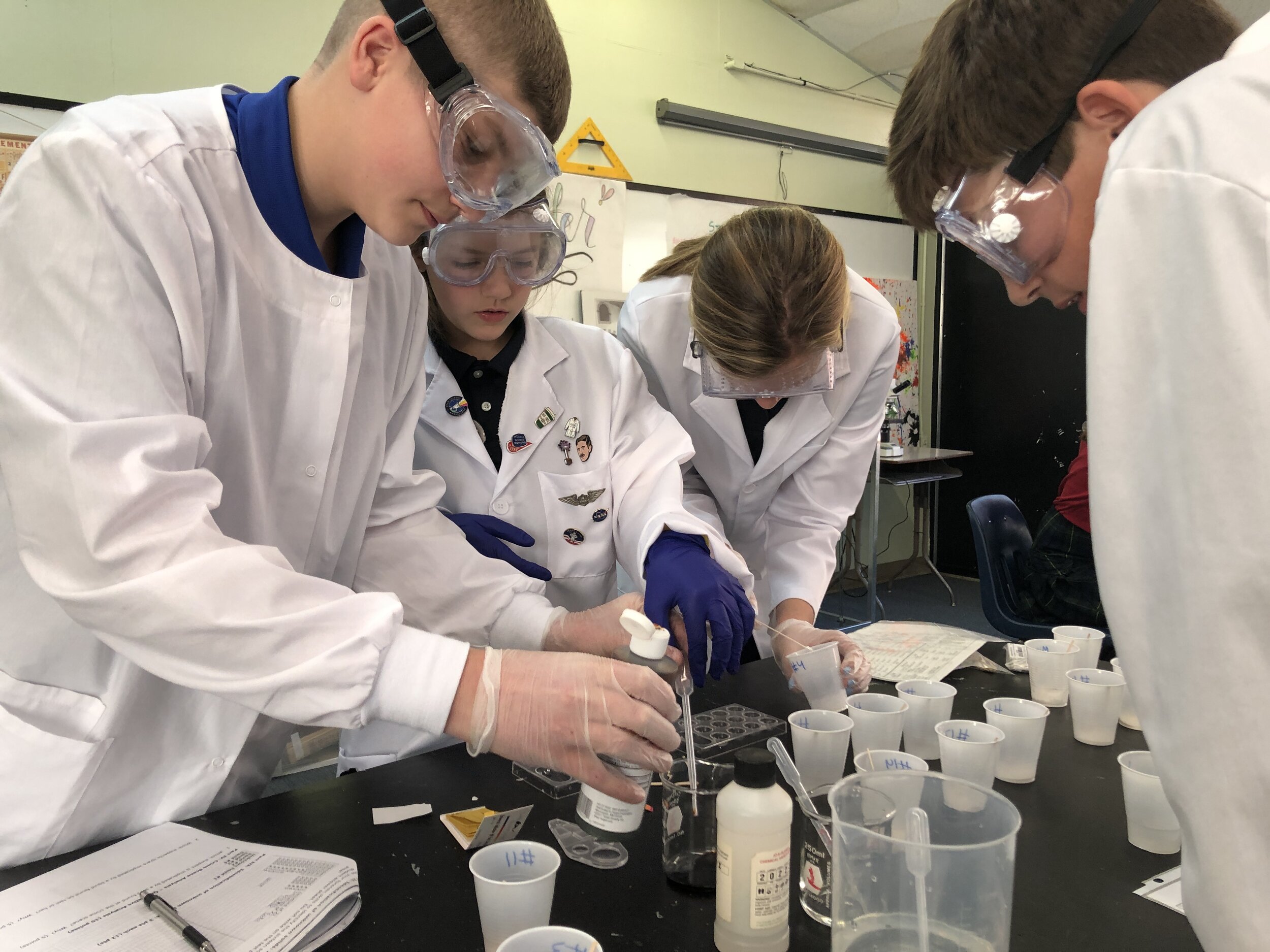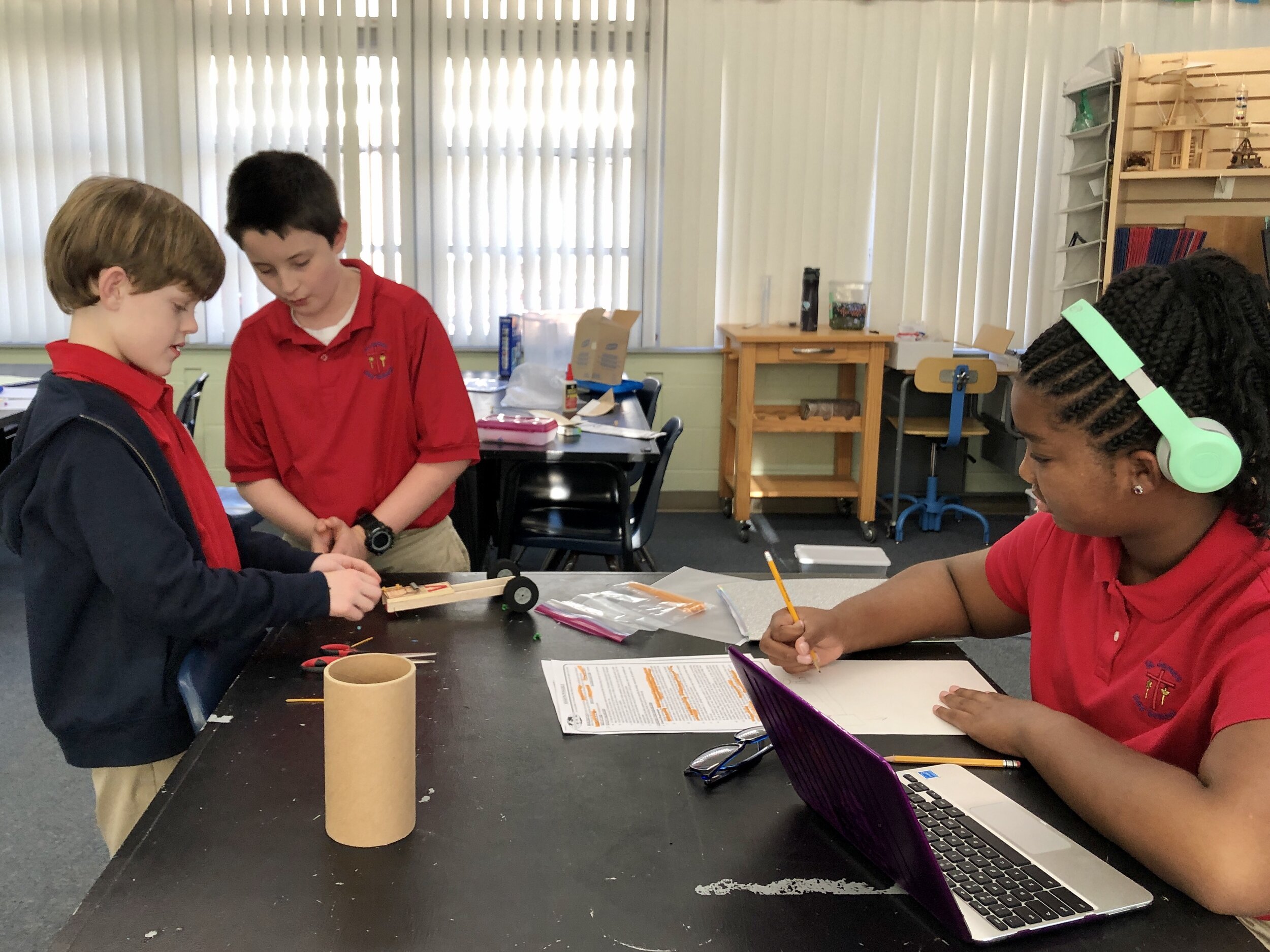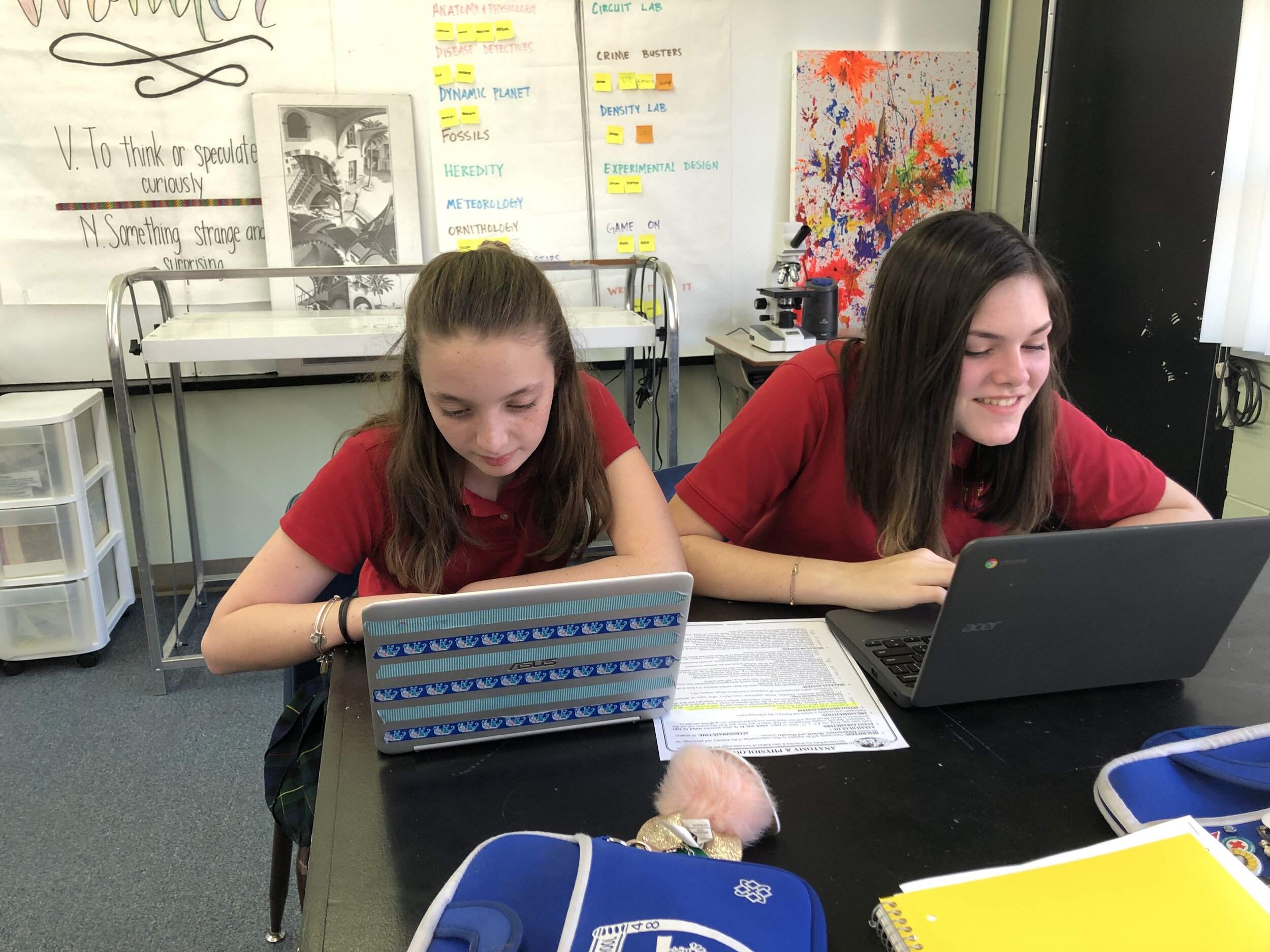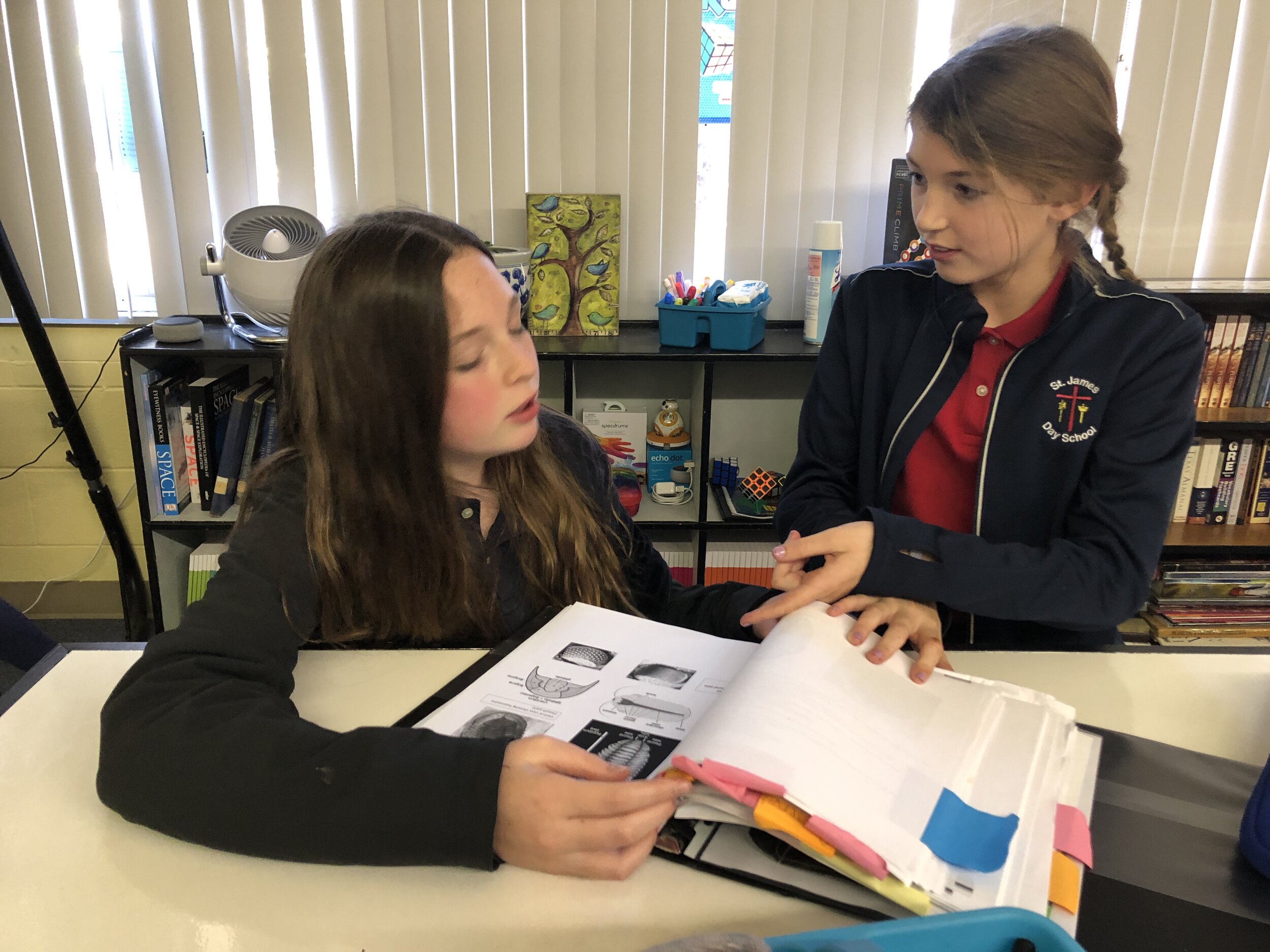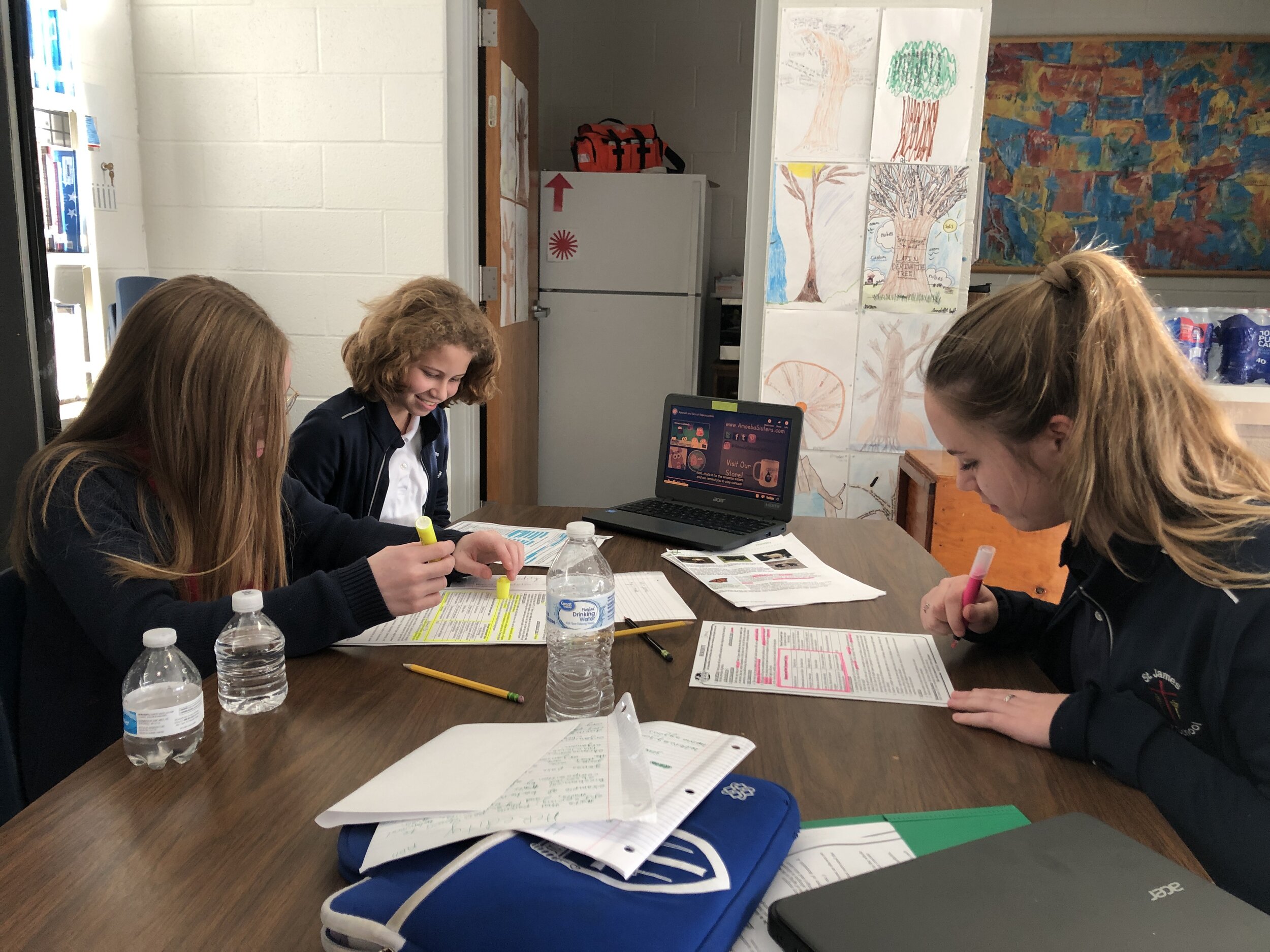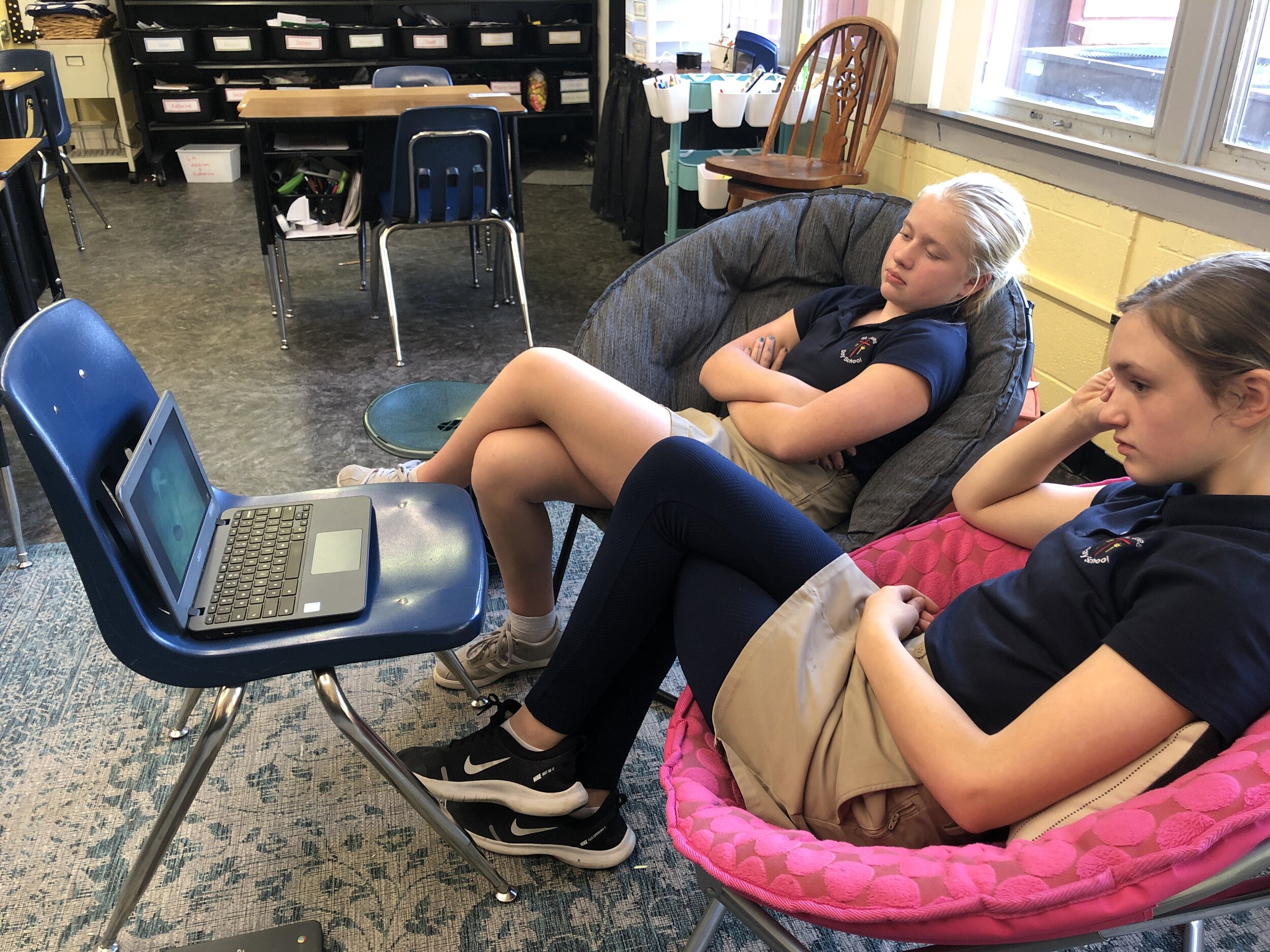by Susie Rogers, Middle School ELA teacher
“Chapel is the heart and soul of our school community”
St. James is known as a small Christian school with strong academics. As a child, I was fortunate to attend St. James, and then as a parent, I sent my girls here. I now have come full circle as I am presently an English Language Arts teacher at this beloved school. I do not take this privilege lightly.
One facet I have loved throughout all my years with St. James is the Christian family atmosphere. As a student, I always felt safe and secure and was able to grow in my relationship with God. As a mom, I was comforted that my children would be surrounded by love and religion. As a teacher, I know my job is beyond teaching my students the 3 R’s of education: “reading, writing, and arithmetic;” every other aspect must grow from the foundation of the fourth R, religion. I must show them the way to become independent thinkers, to be kind and compassionate citizens, and to grow in their faith.
No one is as honest as children, so I asked my 7th graders their perspectives about attending a small Christian school. Their responses confirmed my belief that St. James Day School is much more than a school; it is truly God’s home.
At St. James praying is one of the many advantages that my classmates and I have. We pray to ourselves, as a class, as a grade, and every Tuesday, as a school. Talking to teachers and other students about God is encouraged. Annabelle
I am glad that I go to a Christian school because I can discuss and ask questions about God. James
One of the things I like about St. James is having daily devotional ... Another thing I appreciate is how we are fortunate to discuss God and read the scripture every day. Kennley
It feels really good to have prayer requests in school because everyone gets to share their requests. Bramlett
I like discussing the scriptures that we read because we can see the different perspectives of everyone's point of view. I feel very fortunate to have a daily devotional and to be able to discuss God with my classmates. Elle
I believe chapel services are a good way to come together as a group and worship God. It gives me a sense of security. Carolina
The Christian background that St. James sets for its students can change a kid’s whole life for the good. Abbie
Talking to God every day is a way of dealing with things that we are going through in our lives. Jon
I think it is good that everybody has a good connection with God. When we have Daily devotional, we read scriptures that lead up to things like Lent and Advent. Emma
One of the things that I love most about St. James is devotional. I like devotional because we get to read and learn about God. We also get to tell what is on our minds and on our hearts. Lastly, we have prayer requests and we say the lord's prayer. I like having prayer requests because you can pray for people and your classmates. Molly




